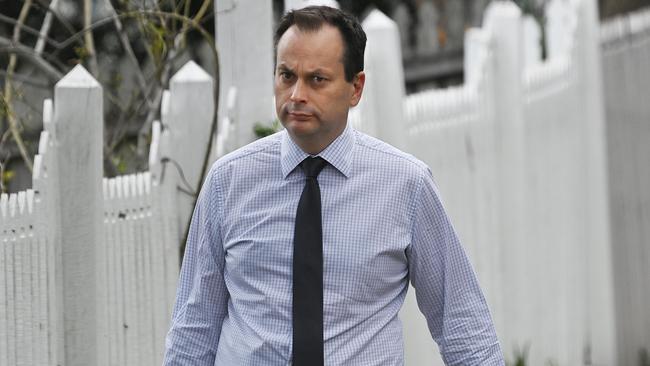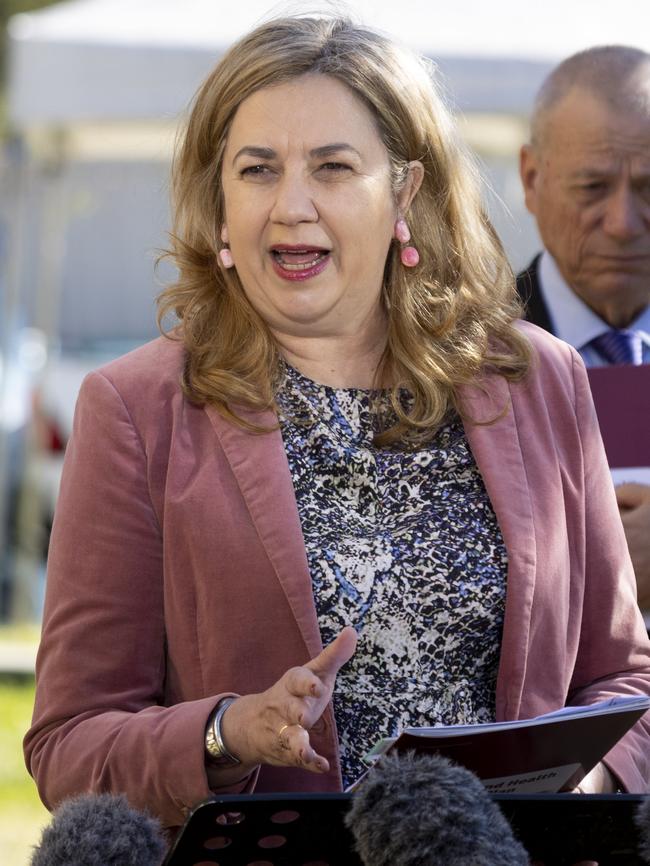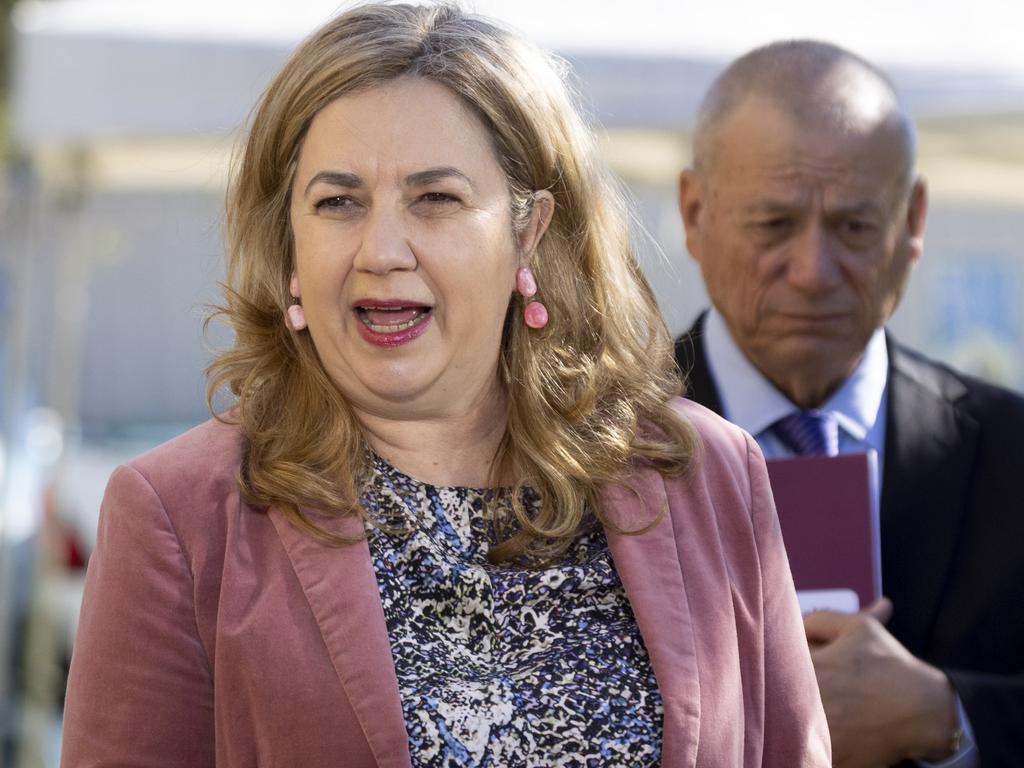Queensland Building and Construction Commission board rules sidestepped to get Evan Moorhead onboard
The Palaszczuk government’s building regulator sidestepped its procurement rules to hire top Labor lobbyist Evan Moorhead and a fellow ALP powerbroker signed off on the deal.

A former ALP Queensland president facilitated the hiring of factional ally and Labor lobbyist Evan Moorhead to a state government building regulator, which he chaired, by personally authorising an “exception’’ to official procurement rules.
Documents released under Right to Information laws show Mr Moorhead was recruited for the month-long contract by Queensland Building and Construction Commission board chair Dick Williams, who was president of the Queensland Labor Party when Mr Moorhead was its state secretary.
Mr Williams also personally signed off on and approved the agency’s “exception to procurement procedures” hiring of Mr Moorhead and his lobbying firm, Anacta Strategies, which was designed to improve relations with the regulator’s own minister, Mick de Brenni. All three men are members of Queensland Labor’s dominant Left faction.
The sign-off came despite the QBCC’s chief financial officer warning she did not know how Anacta’s engagement was being funded, what procurement process had been done, and that it would require an “exception to procurement” to be approved by then commissioner Brett Bassett.
Months before his engagement by the QBCC in late 2019, Mr Moorhead left Premier Annastacia Palaszczuk’s office, where he had served as director of government strategy and her top political adviser.

Ms Palaszczuk on Monday announced modest changes to the state’s lobbying rules, including broadening the definition of a lobbyist, and telling lobbyists and ministers to publicly declare more information about what is discussed at their meetings. The reforms were derided as “laughable” by the opposition, which is continuing to push for a royal commission into government integrity.
It follows a long-running investigation by The Australian into the growing power of lobbyists in Queensland, and comes as professor Peter Coaldrake prepares to publish his government-commissioned review of public sector culture on Tuesday.
Queensland’s corruption watchdog is also stepping up its probe into lobbyists, declaring corruption risks have “intensified” since the last state election campaign and confirming a small group of lobbyists was being given a “disproportionate amount of access” to decision-makers.
Since Mr Moorhead quit Ms Palaszczuk’s office, Anacta Strategies has become the most in-demand lobbying firm in Queensland, commanding hundreds of meetings with ministers and senior staff. At the same time, he orchestrated Ms Palaszczuk’s 2020 election victory, has been hired by government departments to advise on policy, and has acted as a consultant to companies such as Star Entertainment. The RTI documents reveal Anacta’s appointment was an apparent shock to QBCC chief financial officer Rebecca Hockings, who warned Mr Bassett and then-deputy commissioner Philip Halton in November 2019 that the hiring would require an “exception to procurement” sign-off.
“I am not aware of the details of the engagement as the [Anacta] proposal has limited information (how long are we engaging for) (what are the dates), what procurement process was undertaken, where is this being coded/funded from),” Ms Hockings wrote. “I am assuming this is a direct sourcing of services which will require an exception to procurement to be processed and approved by the commissioner.”
Mr Halton also appeared to question the engagement of Anacta in January 2020 after receiving Ms Hockings’ warning, asking Mr Bassett: “If it turns out that we haven’t formally confirmed with Anacta, and if they haven’t undertaken work, will we want to proceed or will there be an appetite to reconsider?”
A day later, Mr Williams and Mr Bassett personally signed off on the procurement “exception”, arguing the diversion from standard procurement procedures was necessary because Mr Moorhead’s firm has “the knowledge to co-ordinate relations with executive government” and “specialist knowledge in respect to government communications”.
In his pitch to the QBCC, he warned he was not allowed to attend meetings with government officials on matters he’d dealt with while working for Ms Palaszczuk, nor share any confidential government information. Mr Moorhead also said he would not be lobbying for the agency.
The QBCC paid Anacta and Mr Moorhead $8800 for a month’s work, advising the statutory body on how to deal with Mr de Brenni, who later said he never met with the lobbyist about the building regulator.
For the fee, Mr Moorhead delivered a six-page report, held a couple of meetings with the QBCC, and spoke to Mr de Brenni’s government advisers and QBCC senior staff. Mr Williams was appointed by Mr de Brenni as chair of the board in 2016.
The documents were released after a request by opposition MP Michael Hart, who said it would have been cheaper for Mr Williams to have sat down with Mr de Brenni to discuss the issues.
Pre-empting Professor Coaldrake’s report, which is expected to recommend changes to lobbying rules in Queensland, Ms Palaszczuk said her cabinet had made a “fundamental first step” to tighten regulations.
She said everyone who worked for a lobbying firm – whether they be an adviser, consultant or communications specialist – would need to be registered as a lobbyist.




To join the conversation, please log in. Don't have an account? Register
Join the conversation, you are commenting as Logout